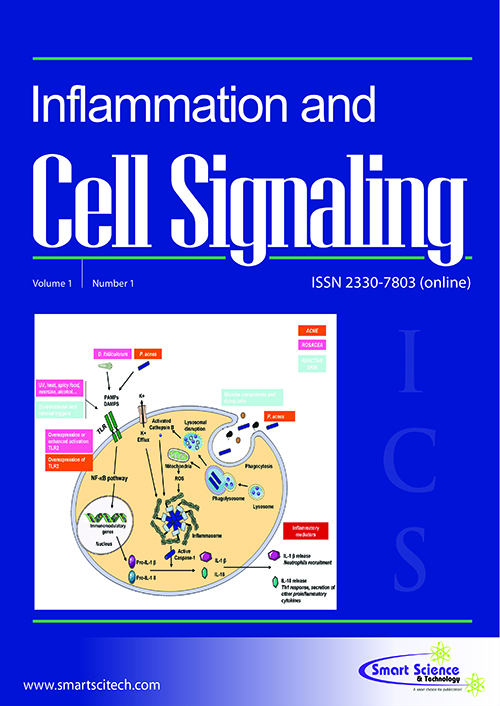Adiponectin and Alzheimer's disease: Is there a link?
DOI: 10.14800/ics.154
Abstract
Obesity is a recently established risk factor for Alzheimer’s disease (AD) and dementia. The mechanisms linking obesity to AD have not been firmly established and therefore no evidence-based hypotheses exist for designing preventative or therapeutic interventions. Adiponectin is the most abundant adipokine in the circulation and its levels are substantially reduced in obesity. In peripheral tissues, adiponectin exerts a wide range of beneficial physiological actions, including anti-diabetic, anti-inflammatory, anti-atherosclerotic and cardioprotective effects. Several different lines of evidence indicate that adiponectin exerts effects on the brain, but data is still conflicting. Recently work from our laboratory confirmed the expression of adipoR1 and adipoR2 in primary human astrocytes isolated from adult brain samples and we found that globular adiponectin induced astrocyte inflammation. Due to the prominent role of brain inflammation in AD, astrocyte inflammation induced by globular adiponectin could be involved in AD-related pathology. In this brief review, we summarized the evidence connecting obesity and AD, with a specific focus on the potential involvement of adiponectin. We also suggest approaches for further exploring adiponectin's effects in AD pathogenesis. Elucidating the role of adiponectin in AD-related pathology will hold promise for identifying potential therapeutics that could promote positive effects of adiponectin for the prevention and/or treatment of AD and dementia in the context of obesity.














